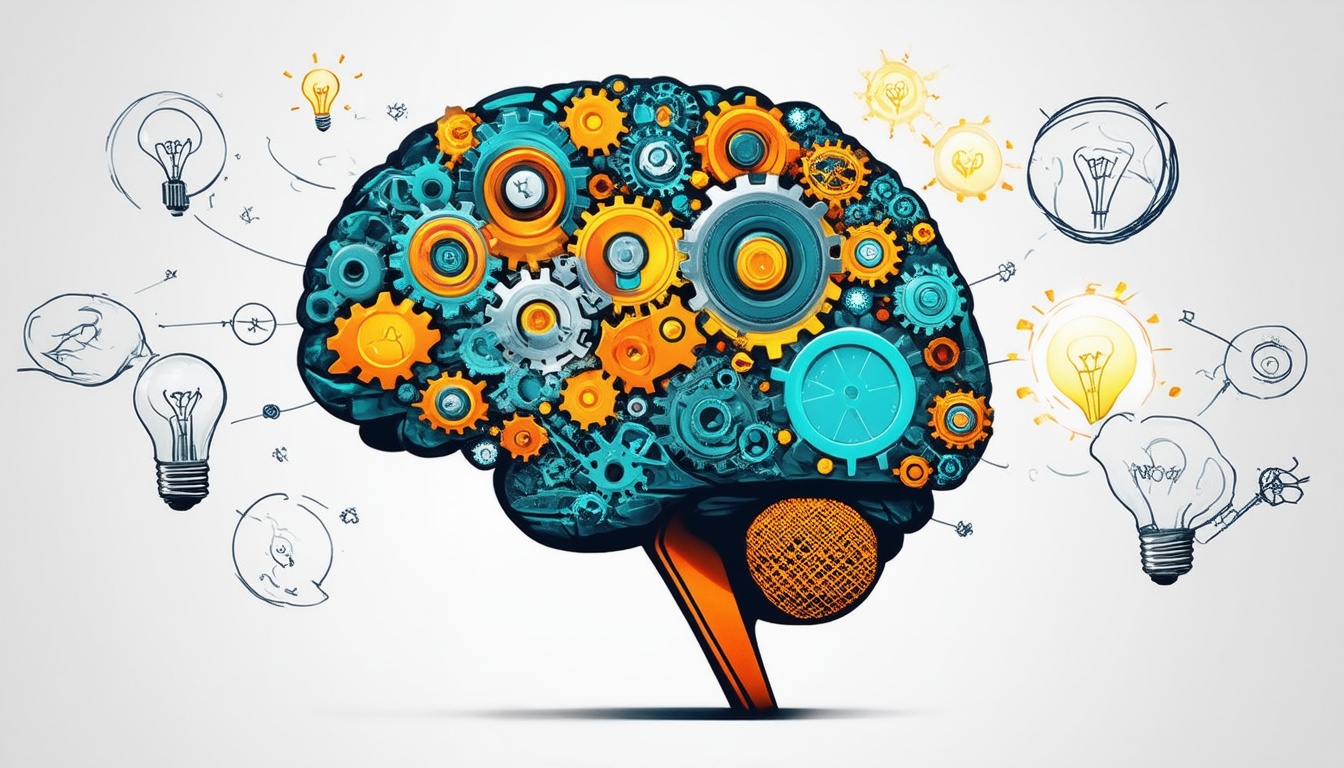Understanding The Power Of Mindset
The power of mindset is an extraordinary force shaping individual wellness and success. Those who harness it see remarkable transformations in their lives, supported by mindset awareness and development. For entrepreneurs, the mindset doesn’t just guide but propels their ventures, making mindset in business crucial. Embracing mindset shifts can lead to profound breakthroughs, fostering resilience and adaptability.
Mindset exercises and mindset journaling play vital roles in nurturing this transformation. They offer pathways to mindset mastery, facilitating a mindset reset and change. Mindset books and mindset coaching strengthen this journey, providing insights and inspiration. Renowned mindset quotes capture the essence of this journey, highlighting the interplay of mindset and leadership. This focused understanding of mindset underscores its significance in achieving both personal fulfillment and professional triumphs.

What is Mindset
Mindset represents the deeply ingrained beliefs and attitudes that shape an individual’s perception of the world and their place within it. This mental framework significantly influences how people respond to challenges and opportunities. With mindset awareness, one can consciously engage in mindset development, fostering resilience and positivity that can lead to mindset mastery. Such development is essential, especially when pursuing mindset and success in personal and professional arenas.
Comparing mindset for entrepreneurs versus mindset in business reveals distinct nuances. Entrepreneurs benefit from a mindset that embraces innovation and risk-taking, while in business, the focus often shifts toward strategic thinking and leadership. Embracing mindset shifts and actively participating in mindset coaching can enhance both perspectives, fostering a mindset transformation that aligns with individual goals.
Through practices like mindset journaling and engaging with mindset books, individuals cultivate a powerful mindset for change. These tools encourage mindset exercises that promote growth and self-reflection, fueling a mindset reset that continually adapts to life’s demands. Mindset and leadership are interwoven, emphasizing the importance of nurturing a growth-oriented outlook that inspires and motivates others, underlining the profound influence of mindset on human potential.

The Science Behind Mindset
Understanding the power of mindset through a scientific lens reveals how neural pathways and cognitive patterns influence thoughts, emotions, and behaviors. Neuroplasticity, or the brain’s ability to form and reorganize synaptic connections, underscores the potential for mindset change and development. This adaptability supports mindset shifts, enabling individuals to embrace mindset transformation by adapting their thought processes to new circumstances and goals.
Think of mindset as the brain’s GPS. Just like a navigation system adjusts to traffic conditions, mindset adapts to life’s changes, driving mindset awareness and growth. This adaptability is why mindset exercises are powerful tools for mindset mastery, helping to rewire one’s perspective toward achieving mindset and success.
Research suggests that mindset reset is pivotal for mental health and well-being. Techniques like mindset journaling and mindset coaching are aligned with encouraging new neural pathways. These practices are instrumental in mindset development, guiding individuals through challenges and reshaping their mindset towards ambition and resilience.
For entrepreneurs and leaders, the science of mindset in business highlights the importance of cultivating a growth mindset. The focus is not just on achieving immediate success but on fostering a mindset for change that promotes sustainable growth and innovation, unlocking the limitless potential within each individual.

The Impact of Mindset on Success
The impact of mindset on success is profound, fundamentally altering one’s trajectory toward their goals. Those who cultivate a growth mindset are more likely to perceive challenges not as insurmountable obstacles but as opportunities for learning and growth. This mindset for change is integral for both personal achievements and professional accomplishments. Mindset exercises and mindset books can be pivotal in reinforcing this perspective, fostering mindset mastery that aligns with one’s ambitions.
Consider the story of Sara Blakely, founder of Spanx, who achieved remarkable success through her unwavering growth mindset. Despite numerous rejections early in her career, Blakely’s resilient mindset in business propelled her forward. Her story exemplifies how mindset shifts when combined with perseverance, can lead to groundbreaking achievements, influencing aspiring entrepreneurs worldwide.
Mindset journaling and mindset coaching also play significant roles in sustaining a success-oriented mindset. They encourage individuals to reflect, adapt, and transform, resulting in increased mindset awareness and mindset development. For mindset and leadership, embracing a flexible and innovative mentality is essential, opening avenues for creative solutions and enhancing team success. The mindset reset approach transforms how individuals define and pursue success, unlocking the power within to reach new heights.

Cultivating a Growth Mindset
Cultivating a growth mindset involves embracing a philosophy where learning and adaptation become cornerstones for success. This mindset opens doors to discovering latent potential, encouraging people to seek continuous improvement and develop new skills. Within the context of mindset and success, nurturing this attitude propels individuals to great heights, empowering them to see obstacles as opportunities for growth and innovation.
To truly grasp the concept of a growth mindset, you need to shift your thinking from fearing failure to viewing it as a valuable learning experience. This transformation requires letting go of limiting beliefs and adopting a mindset for change that thrives on resilience and effort. Mindset exercises and mindset coaching can facilitate this journey, providing structured avenues for personal and professional development.
Mindset journaling is another powerful tool in cultivating this mindset, allowing reflection that ignites mindset awareness and transformation. This practice and insights from mindset books reinforce the principles of mindset mastery, driving individuals towards endless curiosity and resilience. This shift in perspective is crucial for leaders and entrepreneurs, as a mindset in business often requires navigating complex and uncertain terrains with agility and confidence.

The Role of Mindset in Relationships
Mindset fundamentally influences how relationships are built and maintained, directly affecting communication and understanding between individuals. When people adopt a growth-oriented mindset in their interactions, they enhance mutual respect and empathy, fostering deeper connections. This mindset awareness helps nurture healthy dynamics, promoting mindset transformation that can resolve conflicts and strengthen bonds.
A closer look at Carol Dweck’s pioneering research on mindset reveals how adopting a growth mindset can transform relationship dynamics. Her studies have shown that when individuals perceive relationships as evolving and improving over time, rather than static, they invest more in developing communication skills and understanding. This mindset development leads to more resilient and fulfilling partnerships.
Mindset journaling serves as a reflective tool enabling individuals to identify and modify responses and behaviors in relationships. Such practices encourage mindset shifts, facilitating mindset mastery over interactions and emotions. Mindset exercises provide a platform for exploring how one’s attitudes affect interpersonal connections, creating pathways for improved mindset and success in relationships. By embracing a mindset for change, individuals learn to navigate the complexities of human interactions with greater ease and warmth.

Mindset and Lifelong Learning
Mindset profoundly influences one’s approach to lifelong learning, encouraging curiosity and adaptability throughout a person’s life. Individuals who adopt a mindset focused on continuous growth are more likely to seek opportunities for personal and professional development. This desire for knowledge expansion aligns perfectly with the principles of mindset coaching, fostering a perpetual cycle of learning and growth.
While many believe that capabilities are fixed and learning potential diminishes with age, there’s a strong case for embracing a growth mindset that defies these limitations. Mindset development suggests that intelligence and skills can be nurtured with dedication and effort over time. This counterargument champions that mindset and success are not confined by age but by one’s willingness to push beyond their self-imposed boundaries.
Mindset books and mindset journaling are valuable tools in enhancing one’s quest for lifelong learning. These resources promote mindset awareness, focusing on the journey rather than the destination. Regular mindset exercises support a mindset reset, continuously rekindling curiosity and an eagerness to acquire new competencies. By integrating a mindset for change, individuals embrace the dynamic nature of learning, ensuring they remain open and responsive to new experiences and ideas for a lifetime.


